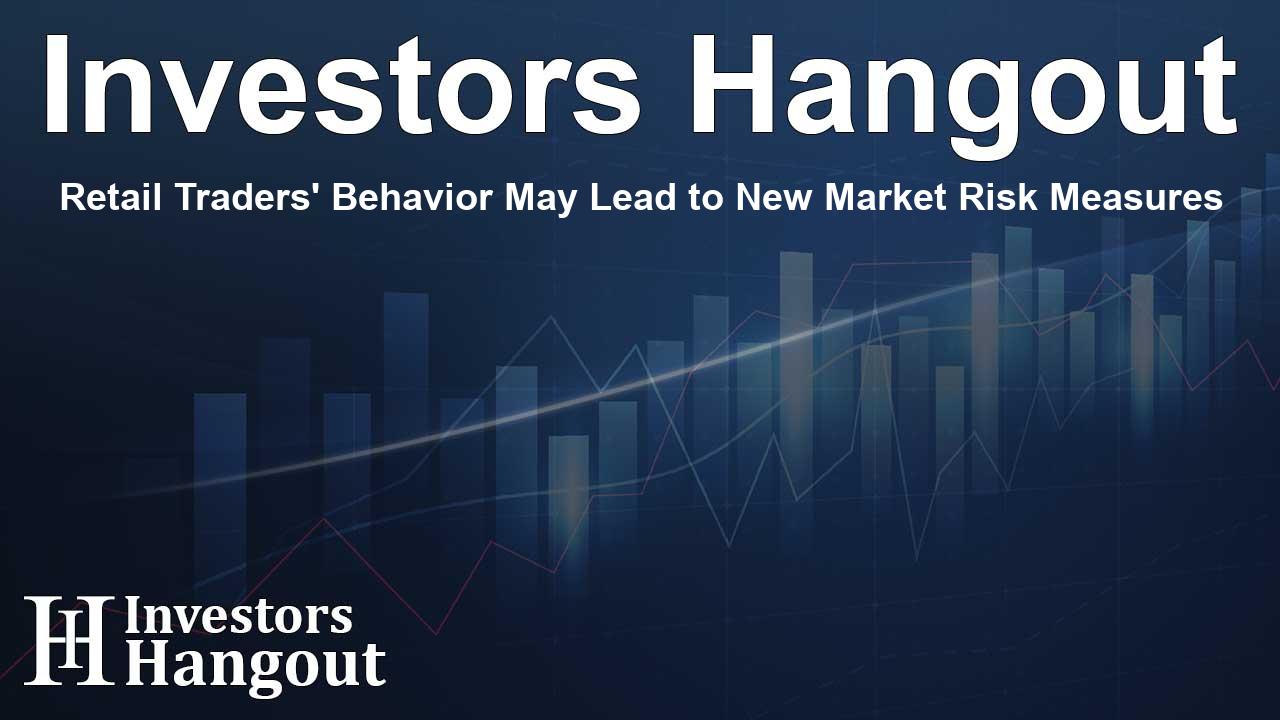Retail Traders' Behavior May Lead to New Market Risk Measures

Understanding Retail Traders’ Stress Signals
In the world of trading, the actions and decisions of retail traders play a crucial role, especially during moments of heightened stress. According to Anton Palovaara, the founder of Leverage.Trading, these behaviors could provide a basis for a volatility index specifically designed to monitor systemic risks across financial markets.
The Role of Leverage.Trading in Market Analytics
Leverage.Trading focuses on education and analytics related to crypto leveraging, margin trading, and futures. Its tools aim to analyze trader behavior and identify patterns that signal potential market volatility before it escalates.
Insights from the Global Leverage & Risk Report
In a recent discussion, Palovaara noted findings from his firm's extensive Global Leverage & Risk Report, which surveyed data from over 27,000 traders across various regions. This comprehensive analysis reveals that traders often adopt defensive strategies well in advance of significant market downturns.
Behavioral Patterns that Predict Volatility
Palovaara states, "Our data shows that traders often prepare for market shifts, providing analysts with a behavioral lens to understand risk sentiment preemptively." Unlike typical liquidation analyses conducted post-event, the tools developed by Leverage.Trading can register early warning signs through liquidation checks and margin recalculations conducted days before market shocks occur.
A New Perspective on Market Dynamics
The emergence of patterns in trader behavior can unveil underlying inefficiencies within the market. For instance, on July 10, activity surged before a significant short squeeze in Bitcoin, providing insights into market sentiment.
The Concept of a 'Retail VIX'
By aggregating behavioral data, Palovaara suggests that a new index, which he refers to as a "retail VIX," could be developed. Unlike traditional VIX, which reflects historical market volatility, this new index would highlight emerging vulnerabilities by combining various metrics such as liquidation checks and leverage ratios.
Signal Analysis and Its Implications
Palovaara explains that regulators typically rely on delayed indicators to assess market health. He argues, however, that a proactive view through a retail-focused volatility index could significantly improve risk monitoring. The behavioral data can foreshadow stress that, if recognized early enough, could influence trading dynamics.
The Impact of Trader Behavior on Market Trends
In illustrating the efficacy of this approach, he refers to recent spikes in liquidation activity. For example, a 28.5% increase in liquidation checks on one particular day resulted in a notable drop in Bitcoin prices shortly thereafter. If such indicators were made visible to traders, they could react more strategically to avoid larger losses.
The Changing Landscape of Trading
The findings also challenge the notion that major market movements are predominantly driven by large-scale investors or 'whales.' Although whales possess significant capital, Palovaara emphasizes that retail traders often provide the preliminary indicators of forthcoming market shifts.
The Increasing Role of Mobile Trading
Another trend characterized by this research is the significant use of mobile devices among traders during critical periods. A striking 85% of liquidation checks were performed via mobile devices, showcasing how retail traders are becoming more adaptable and mobile-oriented.
Final Thoughts on Behavioral Analytics in Trading
Palovaara confidently asserts that the emotional aspect of retail trading is increasingly relevant. The potential for institutionalizing this behavioral data into risk assessments could reshape how market dynamics are viewed and managed. The foundation is already being laid for a structural shift in how traders and regulators interpret market signals.
Frequently Asked Questions
What is the significance of retail traders' behavior?
Retail traders’ behavior, especially during volatile periods, can provide early warnings of market shifts, allowing for better preparation and responses.
How does Leverage.Trading analyze trader behavior?
Leverage.Trading utilizes a variety of tools that track liquidation checks, margin stress tests, and position adjustments to predict volatility patterns.
What is a retail VIX?
A retail VIX is a proposed index that would leverage behavioral data from retail traders to indicate emerging market stress before it manifests.
How do mobile devices influence trading?
Mobile trading allows retail traders to remain engaged and responsive to market changes, but it may also introduce risks related to latency and emotional trading responses.
Can behavioral analytics become a standard risk monitoring tool?
Yes, with ongoing development, such behavioral analytics could be institutionalized to enhance market risk monitoring across various asset classes.
About The Author
Contact Addison Perry privately here. Or send an email with ATTN: Addison Perry as the subject to contact@investorshangout.com.
About Investors Hangout
Investors Hangout is a leading online stock forum for financial discussion and learning, offering a wide range of free tools and resources. It draws in traders of all levels, who exchange market knowledge, investigate trading tactics, and keep an eye on industry developments in real time. Featuring financial articles, stock message boards, quotes, charts, company profiles, and live news updates. Through cooperative learning and a wealth of informational resources, it helps users from novices creating their first portfolios to experts honing their techniques. Join Investors Hangout today: https://investorshangout.com/
The content of this article is based on factual, publicly available information and does not represent legal, financial, or investment advice. Investors Hangout does not offer financial advice, and the author is not a licensed financial advisor. Consult a qualified advisor before making any financial or investment decisions based on this article. This article should not be considered advice to purchase, sell, or hold any securities or other investments. If any of the material provided here is inaccurate, please contact us for corrections.
